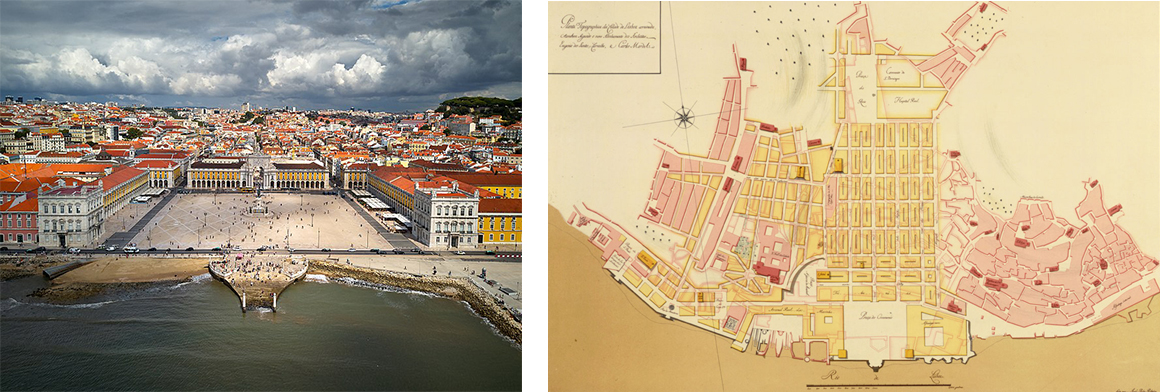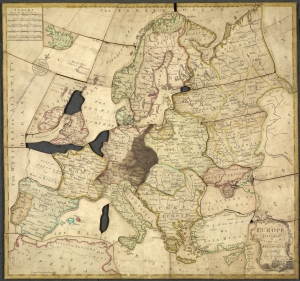The Other Miss Bridgerton
Book 3 in the
Rokesby Series
She was in the wrong place…
Fiercely independent and adventurous, Poppy Bridgerton will only wed a suitor whose keen intellect and interests match her own. Sadly, none of the fools from her London season qualify. While visiting a friend on the Dorset coast, Poppy is pleasantly surprised to discover a smugglers’ hideaway tucked inside a cave. But her delight turns to dismay when two pirates kidnap her and take her aboard a ship, leaving her bound and gagged on the captain’s bed…
He found her at the wrong time…
Known to society as a rascal and reckless privateer, Captain Andrew James Rokesby actually transports essential goods and documents for the British government. Setting sail on a time-sensitive voyage to Portugal, he’s stunned to find a woman waiting for him in his cabin. Surely, his imagination is getting the better of him. But no, she is very real—and his duty to the Crown means he’s stuck with her.
Can two wrongs make the most perfect right?
When Andrew learns that she is a Bridgerton, he knows he will likely have to wed her to avert a scandal—though Poppy has no idea that he is the son of an earl and neighbor to her aristocratic cousins in Kent. On the high seas, their war of words soon gives way to an intoxicating passion. But when Andrew’s secret is revealed, will his declaration of love be enough to capture her heart…?
There were Bridgertons before the eight alphabetically named siblings. In the third of the Bridgerton Prequel series, we go back to where it all began. . . from #1 New York Times bestselling author Julia Quinn
 Start Reading Now
Start Reading Now
 Explore Inside this Story
Explore Inside this Story

Books in this series:
Find out more about the Rokesby Series →
-
Quinn-tessential Quote
"All my prisons are comfortable," Poppy muttered. But they were prisons, nonetheless.
-

Inside the Story:
JQ’s Author Notes- If you've read The Girl With the Make Believe Husband (Book 2 in the Rokesby series) you know that it ended with Edward Rokesby asking about his brother Andrew. To which George Rokesby replies, "Well, now that is quite a story." This is where I admit that I had NO IDEA what that story might be. I figured—Andrew is such a fun character, surely he's up to something romance novel-worthy. I eventually cooked up a plot in which he was sent to the central European principality of Wachtenberg-Molstein (don't try to locate it on a map; I made it up). His job was to escort a princess back to London. He wasn't going to fall in love with the princess, though; he was destined for her more sensible (and less likely to cause a diplomatic incident) only semi-royal cousin. At least that was the plan. All this, and I had the added bonus of being able to gather research on a Danube river cruise I took with my niece. Score!
- Alas, the story went nowhere. I don't think I even made it out of Chapter Two. I finally gave up and started afresh, but I was so annoyed that I decided Andrew would still have to go to Wachtenberg-Molstein. And indeed, you'll find mention of it—and his eventful journey home—within the pages of The Other Miss Bridgerton.
- In 1755 Lisbon was hit by a devastating earthquake, the magnitude of which is now estimated between 8.5 and 9 on the Richter scale. Three tsunamis and a fire followed, and by the time the it was all over, 85% of Lisbon's buildings had been destroyed. The rebuilding effort commenced soon thereafter; barely a month after the quake, the king and prime minister had approved a plan to raze the Baixa quarter and "lay out new streets without restraint."

CC BY 2.0 image (left) and public domain image (right) as per Wikimedia Commons 
CC BY-SA 3.0 image as per Wikimedia Commons. - This rebuilt neighborhood has endured, and its buildings are considered some of the earliest seismically protective architecture in Europe. Most buildings were built over framework known as Pombaline Cages (named for the first Marqês de Pombal, who led the reconstruction efforts). I knew that Andrew would be fascinated by the construction; one has only to look at his passion for building card houses to know that he's an architect at heart.
- I discovered malasadas in Honolulu, of all places. While visiting with my sister, I decided we HAD to find a true local place to eat, and we ended up at Leonard's Bakery, which was founded in 1952 by Leonard & Margaret Rego. Leonard was the grandson of Portuguese immigrants, and when he introduced the "Portuguese Doughnut" to Hawaii it was an instant hit.

Images from Leonard's Bakery website. 
Public domain as per Wikimedia Commons - I stumbled upon the idea of dissected maps when I was researching the history of jigsaw puzzles. (I can no longer remember why; maybe just because I love them myself.) There is some disagreement over who made the first one, but John Spilsbury, a London-based cartographer and engraver, was certainly among the earliest manufacturers. A map would be overlaid on thin wood, then cut along geopolitical boundaries with a handheld saw.
- The maps were very expensive and quickly became a symbol of wealth and privilege. Jane Austen alludes to this in Mansfield Park when Fanny Price is mocked by her wealthy cousin who says, "Dear mama, only think, my cousin cannot put the map of Europe together."
- As far as I can tell, there were no dissected maps cut like Andrew's—into many pieces, with no regard for geographical or political boundaries. Andrew's puzzle would have been extremely expensive, but I think it's exactly the sort of thing he'd choose to spend his hard-earned money on.

Image from Amazon. - When I was growing up, we put our Scrabble tiles in a purple and gold Crown Royal drawstring bag. I have no idea why; my parents are not big drinkers, and I've never seen either one of them drink Crown Royal. But the memory is strong, and so when I needed a bag for the puzzle pieces, I immediately pictured it as purple and gold.
- Finally, did you catch the brief mention of the Duchess of Wyndham? This is the same duchess who shows up much older (as the dowager duchess) in The Lost Duke of Wyndham and Mr. Cavendish, I Presume. Poppy is fairly certain that the duchess didn't like her when they met, which seems exactly right, as the duchess we know doesn't like anyone.
Images: · Port of Lisbon street scene & map. Photo is licensed under the Creative Commons Attribution 2.0 Generic license. 1756 map is in the public domain. · Pombaline Cage: Image is licensed under the Creative Commons Attribution-Share Alike 3.0 Unported license. · Leonard's Bakery image courtesy of leonardshawaii.com. Malasadas photo from Baking Bites review of Leonard's. · Dissected map: Image is licensed under the Creative Commons CC0 1.0 Universal Public Domain. · Crown Royal bag: Image from the amazon.com listing.

Bonus Features
Enjoy an Excerpt
from
The Other Miss Bridgerton
Chapter One
Early summer 1786
For a young woman who had grown up on an island, in Somerset to be precise, Poppy Bridgerton had spent remarkably little time at the coast.
She was not unfamiliar with water. There was a lake near her family’s home, and Poppy’s parents had insisted that all their children learn to swim. Or perhaps more accurately, they had insisted that all their sons learn to swim. Poppy, the sole daughter of the bunch, took umbrage at the notion that she would be the only Bridgerton to die in a shipwreck and said as much to her parents –in precisely those words– just before she marched alongside her four brothers to the water’s edge and hurled herself in.
She’d learned faster than three out of four of her brothers (it wasn’t fair to compare her to the eldest; of course he’d catch on more quickly), and to this day she was, in her opinion, the strongest swimmer in the family. That she might have achieved this goal as much out of spite as natural ability was irrelevant. It was important to learn how to swim. She would have done so even if her parents hadn’t originally told her to wait patiently on the grass.
Probably.
But there would be no swimming today. This was the ocean, or at least the channel, and the chilly, bitter water was nothing like the placid lake at home. Poppy might be contrary, but she wasn’t stupid. And alone as she was, she had nothing to prove.
Besides, she was having far too good a time exploring the beach. The soft give of the sand beneath her feet, the tang of the saltwater air–they were as exotic to her as if she’d been dropped into Africa.
Well, maybe not, Poppy thought as she nibbled on a piece of the very familiar-tasting English cheese she’d brought along on her hike. But still and all, it was new, and it was a change, and that had to count for something.
Especially now, with the rest of her life the same as it ever was.
It was nearly July, and Poppy’s second London season –compliments of her aristocratic aunt, Lady Bridgerton– had recently drawn to a close. Poppy had found herself ending the season much as she’d begun it– unmarried and unattached.
And a little bored.
She supposed she could have remained in London for the last dregs of the social whirl, hoping that she might actually meet someone she hadn’t met before (unlikely). She could have accepted her aunt’s invitation to rusticate in Kent, on the off chance that she might actually like one of the unmarried gentlemen who just happened to be invited for dinner (even less likely). But of course this would have required that she grit her teeth and attempt to hold her tongue when Aunt Alexandra wanted to know what was wrong with the latest offering (the least likely of all.)
Her choices had been dull and duller, but thankfully she’d been saved by her dear childhood friend Elizabeth, who had moved to Charmouth several years earlier with her husband, the affable and bookish George Armitage.
George, however, had been called to Northumberland for some urgent family matter, the details of which Poppy had never quite got straight, and Elizabeth had been left alone at her seaside house, six and a half months with child. Bored and confined, she’d invited Poppy to come for an extended visit, and Poppy had happily accepted. It would be like old times for the two friends.
Poppy popped another bite of cheese into her mouth. Well, except for the massive size of Elizabeth’s belly. That was new.
It meant Elizabeth couldn’t accompany her on her daily jaunts to the shore, but that was no matter. Poppy knew her reputation had never included the word shy, but conversational nature notwithstanding, she rather enjoyed her own company. And after months and months of making small talk in London, it felt rather nice to clear her head with the sharp sea air.
She’d been trying to take a different route each day, and she had been delighted to discover a small network of caves about halfway between Charmouth and Lyme Regis, tucked away where the foamy waves lapped the shore. Most filled with water when the tide was in, but after surveying the landscape, Poppy was convinced that there had to exist a few that remained dry, and she was determined to find one.
Just because of the challenge, of course. Not because she had any need of a perpetually dry cave in Charmouth, Dorset, England.
Great Britain, Europe, the World.
One really had to take one’s challenges where one could, given that she was in Charmouth, Dorset, England, and that seemed a decidedly small corner of the world, indeed.
Finishing the last bites of her lunch, she squinted up toward the rocks. The sun was to her back, but the day was bright enough to make her wish for a parasol, or, at the very least, a large shady tree. It was gorgeously warm, too, and she’d left her redingote back at the house. Even her fichu, which she’d worn to protect her skin, was starting to get itchy and hot across her chest.
But she wasn’t going to turn back now. She’d not come this far before, and in fact had only made it to this point after convincing Elizabeth’s plumpish maid, who’d been drafted as her chaperone/companion, to remain behind in town.
“Think of it as an additional afternoon off,” Poppy had said with a winning smile.
“I don’t know.” Mary’s expression was doubtful. “Mrs. Armitage was quite clear that–”
“Mrs. Armitage hasn’t had a clear thought since finding herself with child,” Poppy cut in, sending Elizabeth a silent apology. “It’s like that for all women, I’m told,” she added, trying to get the maid’s mind off the subject at hand, namely, Poppy’s chaperonage, or lack thereof.
“Well, that’s certainly true,” Mary said, tilting her head slightly to the side. “When my brother’s wife had her boys, I never could get a sensible word out of her.”
“That’s it exactly!” Poppy exclaimed. “Elizabeth knows that I will be perfectly fine on my own. I’m no spring miss, after all. Hopelessly on the shelf, they say.”
As Mary attempted to assure her that that was most certainly not the case, Poppy added, “I’m only going for an easy little stroll by the shore. You know that. You came with me yesterday.”
“And the day before that,” Mary said with a sigh, clearly not relishing the prospect of another afternoon of exertion.
“And the day before that as well,” Poppy pointed out. “And what, all week before that?”
Mary nodded glumly.
Poppy didn’t smile. She was far too good for that. But success was clearly right around the corner.
Literally.
“Here,” she said, steering the maid toward a cozy tea shop, “why don’t you sit down and have a rest? Heaven knows you deserve it. I’ve quite run you ragged, haven’t I?”
“You’ve been nothing but kind, Miss Bridgerton,” Mary said quickly.
“Kind and exhausting,” Poppy said, patting Mary’s hand as she opened the tea room door. “You work so hard. You deserve a few minutes for yourself.”
And so, once Poppy had paid for a pot of tea and a plate of biscuits, she’d made her escape –two of the aforementioned biscuits in her pocket– and now she was wonderfully, blessedly on her own.
If only there were ladies’ shoes that were suitable for climbing across rocks. Her little boots were quite the most practical made for women, but they didn’t compare in durability with the sort that sat in her brothers’ wardrobes. She took great care to watch her steps, lest she turn an ankle. This area of the beach did not receive much foot traffic, so if she hurt herself, heaven only knew how long it would take for someone to come after her.
She whistled as she walked, enjoying the opportunity to engage in such uncouth behavior (wouldn’t her mama be horrified at the sound!), and then decided to compound the transgression by switching to a tune whose words were not suitable for female ears.
“Oh, the barmaid went down to the oh-oh-oh-ocean,” she sang happily, “with an eye toward getting her– What’s this?”
She stopped, peering at a strange formation in the rocks off to her right. A cave. It had to be. And far enough from the water’s edge that it wouldn’t flood in high tide.
“Me secret hideaway, mateys,” she said, winking to herself as she switched direction. It did seem the perfect spot for a pirate, well off the beaten track, its opening obscured by three large boulders. Truly, it was a wonder she’d even spotted it.
Poppy squeezed between the boulders, idly noting that one of them wasn’t as large as she’d originally supposed, then made her way into the mouth of the cave. Should’ve brought a lantern, she thought, waiting for her eyes to adjust to the darkness, although Elizabeth certainly would have wanted to know the reason for that. Hard to explain why one might need a lantern while walking on a beach at half noon.
Poppy took a few baby steps in, nudging her shoes carefully across the ground, searching out rough spots with her feet since she couldn’t possibly see them with her eyes. It was difficult to tell for sure, but the cave seemed deep, stretching out far beyond the light at the opening. She moved forward, emboldened by the thrill of discovery, edging slowly toward the back… slowly… slowly… until…
“Ow!” she yelped, wincing as her hand connected with something quite hard and wooden.
“Ow,” she said again, rubbing the sore spot with her other hand. “Ow ow ow. That was…”
Her words trailed off. Whatever she’d smacked her hand into, it wasn’t a natural outcropping of the cave. In fact, it felt rather like the splintery corner of a rough wooden crate.
With tentative movements, she reached her hand back out until it connected –more gently this time– with a flat wooden panel. No doubt about it, it was definitely a crate.
Poppy let out a little giggle of glee. What had she found? Pirates’ booty? Smugglers’ loot? The cave smelled musty, and it felt unused, so whatever this was, it had probably been there for ages.
“Prepare for treasure,” she laughed, saluting herself in the darkness. A quick check confirmed that the crate was far too heavy for her to lift, so she ran her fingers along the edge, trying to determine how she might get it open. Drat. It was nailed shut. She’d have to come back, although she had no idea how she’d explain away her need for a lantern and a crowbar.
Although…
She cocked her head to the side. If there was a crate –two, actually, one stacked atop the other– in this section of the cave, who knew what might be farther back?
She edged into the gloom, her arms stretched gingerly in front of her. Nothing yet. Nothing… nothing…
“Careful there!”
Poppy froze.
“The captain’ll kill you if you drop it.”
Poppy stopped breathing, relief washing over her when she realized that the rough male voice was not directed toward her.
Relief that was instantly replaced with terror. Slowly, she brought her arms back to her body until she’d enveloped herself in a tight hug.
She was not alone.
Using excruciatingly careful movements, she edged as far behind the crates as she could manage. It was dark, and she was quiet, and whoever was here ought not to see her unless–
“Will you light the damn lantern?”
Unless they had a lantern.
A flame blazed to life, illuminating the back portion of the cave. Poppy’s brow furrowed. Had the men come in from behind her? And if so, how had they entered? Where did the cave go?
“We don’t have much time,” one of the men said. “Hurry up and help me find what we need.”
“What about the rest?”
“It’ll be safe until we get back. It’s the last time, anyway.”
The other man laughed. “So the captain says.”
“He means it this time.”
“He’ll never quit.”
“Well if he doesn’t, I will.” –Poppy heard a pained grunt of exertion, followed by– “I’m getting too old for this.”
“Did you move the boulder in front of the opening?” the first man asked, exhaling as he set something down on the ground.
So that was why she’d had to squeeze in, Poppy realized. She should have wondered how such a large crate had fit through the small space.
“Yesterday,” came the reply. “With Billy.”
“That scrawny mite?”
“Mmph. I think he’s thirteen now.”
“Never say it!”
Good God, Poppy thought, she was trapped in a cave with smugglers –maybe even pirates!– and they were chattering away like two old ladies.
“What else do we need?” came the lower of the two voices.
“Captain says he won’t leave without a crate of the brandy.”
Poppy felt the blood leave her body. A crate?
The other man laughed. “To sell or to drink?”
“Both, I expect.”
Another chuckle. “He’d best be sharing, then.”
Poppy looked around frantically. Enough of the lantern’s light had filtered in her direction that she could see her immediate surroundings. Where the hell was she going to hide? There was a little indentation in the cave wall that she could press herself into, but the men would have to be blind to miss her.
Still, it was better than her current spot. Poppy scrambled back, curling herself into the tiniest ball she could manage, thanking her maker that she’d not worn her bright yellow frock that morning, simultaneously sending up her first true prayer in months.
Please please please.
I’ll be a better person.
I’ll listen to my mother.
I’ll even listen in church.
Please please…
“Jesus, Mary, and Joseph!”
Poppy slowly tipped her face toward the man looming above her. “Forsaken,” she muttered.
“Who are you?” the man demanded, shoving the lantern closer to her face.
“Who are you?” Poppy shot back, before the relative lack of wisdom of such a retort sank in.
“Green!” the man hollered.
Poppy blinked.
“Green!”
“What?” grumbled the other man–apparently named Green.
“There’s a girl!”
“What?”
“Here. There’s a girl.”
Green came running over. “Who the hell is this?” he demanded.
“I don’t know,” the other man said impatiently. “She didn’t say.”
Green bent down, jamming his weathered face close to Poppy’s. “Who’re you?”
Poppy said nothing. She didn’t often hold her tongue, but now seemed an intelligent time to start.
“Who are you?” he repeated, this time groaning with the words.
“No one,” Poppy answered, finding a little courage in the fact that he seemed more tired than angry. “I was just out for a walk. I won’t bother you. I’ll just go. No one will ever know–”
“I’ll know,” Green said.
“And so will I, for that matter,” the other one said, scratching his head.
“I won’t say a word,” Poppy assured them. “I don’t even know what–”
“Damn!” Green cursed. “Damn damn damn damn damn.”
Poppy glanced frantically between the two men, trying to decide whether it was in her best interests to add to the conversation. It was difficult to guess their ages; both had that weather-beaten look one got after spending too much time in the sun and wind. They were dressed simply, in rough work shirts and trousers, tucked into those tall boots men liked to wear when they knew they’d be getting their feet wet.
“Damn!” Green bit off again. “The day only needed this.”
“What should we do with her?” the other man said.
“I don’t know. We can’t leave her here.”
The two men fell silent, staring at her as if she were the world’s largest burden, just waiting to launch itself onto their shoulders.
“The captain’ll kill us,” Green finally sighed.
“It’s not our fault.”
“I suppose we should ask him what to do with her,” Green said.
“I don’t know where he is,” the other one replied. “Do you?”
Green shook his head. “He’s not on the ship?”
“No. He said he’d meet us on deck an hour before we sail. Had some sort of business-like thing to take care of.”
“Damn.”
It was more damns than Poppy had ever heard in one sitting, but there seemed little to be gained in pointing that out.
Green sighed, closing his eyes in what could only be described as an expression of abject misery. “We have no choice,” he said, “We’ll have to take her.”
“What?” the other man asked.
“What?” Poppy screeched.
“Good God,” Green grumbled, rubbing his ears. “Did that squall come from your mouth?” He let out a long-suffering sigh. “I’m too old for this.”
“We can’t take her!” the other man protested.
“Listen to him,” Poppy said. “He’s obviously very intelligent.”
Green’s friend stood up a little straighter and beamed. “The name’s Brown,” he said, nodding politely at her.
“Er, pleased to meet you,” Poppy said, wondering if she ought to extend her hand.
“Do you think I want to take her?” Green said. “Bad luck having a woman on a ship, and especially this one.”
Poppy’s lips parted at the insult. “Well,” she said, only to be cut off by Brown, who asked, “What’s wrong with this one? She said I was intelligent.”
“Which only goes to show that she ain’t. And besides, she talks.”
“So do you,” Poppy shot back.
“See?” Green said.
“She’s not so bad,” Brown said.
“You just said you didn’t want her on the boat!”
“Well, I don’t, but–”
“There is nothing worse than a talky female,” Green grumbled.
“There are many things that are worse,” Poppy said, “and you’re quite fortunate if you’ve never experienced them.”
Green looked at her for a long moment. Just looked at her. Then he groaned, “The captain’s gonna kill us.”
“Not if you don’t take me with you,” Poppy hastened to say. “He’ll never know.”
“He’ll know,” Green said ominously. “He always knows.”
Poppy chewed on her lower lip, assessing her options. She doubted she could outrun them, and Green was blocking her path to the entrance, in any event. She supposed she could cry and hope that her tears might appeal to the softer sides of their natures, but that presumed that they had softer sides.
She looked at Green and smiled hesitantly, testing the waters.
Green ignored her and turned to his friend. “What time–” He stopped. Brown was gone. “Brown!” he yelled. “Where the hell’d you go?”
Brown’s head popped up from behind a stack of trunks. “Just getting some rope.”
Rope? Poppy’s throat went dry.
“Good,” Green grunted.
“You do not want to tie me up,” Poppy said, her throat apparently still wet enough for words.
“No, that I don’t,” he said, “but I have to do it, anyway, so let’s make it easy for the both of us, eh?”
“Surely you don’t think I will allow you to take me without a struggle?”
“I’d been hoping.”
“Well, you can keep hoping, sir, because I–”
“Brown!” Green hollered.
With enough force that Poppy actually shut her mouth.
“Got the rope!” came the answer.
“Good. Get the other stuff as well.”
“What other stuff?” Brown asked.
“Yes,” Poppy said nervously. “What other stuff?”
“The other stuff,” Green said impatiently. “You know what I mean. And a cloth.”
“Oh, the other stuff,” Brown said. “Righto.”
“What other stuff?” Poppy demanded.
“You don’t want to know,” Green told her.
“I assure you I do,” Poppy said, just as she was beginning to think that maybe she didn’t.
“You said you were going to struggle,” he explained.
“Yes, but what does that have to do–”
“Remember when I said I was too old for this?”
She nodded.
“Well, ‘this’ includes a struggle.”
Brown reemerged, clutching a green bottle that looked vaguely medicinal. “Here y’go,” he said, handing it to Green.
“Not that I couldn’t manage you,” Green explained, popping open the cork. “But why? Why make it harder than I have to?”
Poppy had no answer. She stared at the bottle. “Are you going to make me drink that?” she whispered. It smelled foul.
Green shook his head. “You got a cloth?” he asked Brown.
“Sorry.”
Green let out another tired groan and eyed the linen fichu she’d used to fill in the bodice of her dress. “We’ll have to use your handkerchief,” he said to Poppy. “Hold still.”
“What are you doing?” she cried out, jerking backward as he yanked the fichu free.
“I’m sorry,” he said, and strangely enough, it sounded as if he meant it.
“Don’t do this,” Poppy gasped, scrambling as far away from him as she could.
But it wasn’t very far, given that her back was to the cave wall, and as she looked on in horror, he poured a liberal amount of the noxious liquid onto the whisper-thin linen of her fichu It became quickly saturated, and several drops fell through, disappearing into the damp ground.
“You’re going to have to hold her,” Green said to Brown.
“No,” Poppy said, as Brown’s arms came around her. “No.”
“Sorry,” Brown said, and it sounded as if he meant it, too.
Green scrunched the fichu into a ball and placed it over her mouth. Poppy gagged, gasping against the onslaught of foul fumes.
And then the world slipped away.
Chapter Two
Andrew Rokesby strode along the decks of the Infinity, giving the ship one last inspection before they set sail at precisely four that afternoon. Everything appeared to be in order, from bow to stern, and except for Brown and Green, every man was accounted for and well-prepared for the voyage that lay ahead of them.
“Pinsley!” Andrew called out, tilting his head up toward the young man tending to the rigging.
“Yes, sir!” Pinsley called down. “What is it, sir?”
“Have you seen Brown and Green? I sent them out to the cave earlier today for some supplies.”
“Supplies, sir?” Pinsley said with a cheeky grin. Everyone knew why Andrew had really sent out Brown and Green.
“One little tilt of the wheel, and you’ll be hanging by your fingertips,” Andrew warned.
“They’re below, sir,” Pinsley said with a grin. “Saw ’em head down a quarter hour ago.”
“Below?” Andrew echoed, shaking his head. Brown and Green had work to do; there was no reason they should be below.
Pinsley shrugged, or at least Andrew thought he did. It was difficult to tell with the sun in his eyes.
“They was carrying a sack,” Pinsley said.
“A sack?” Andrew echoed. He’d sent them for a crate of brandy. Every man had his indulgences, and his were women in port and French brandy at sea. He had one glass every night, following his supper. Kept life civilized, or at least as civilized as he wanted it.
“Looked real heavy-like,” Pinsley added.
“Brandy in a sack,” Andrew muttered. “Madre de dios, it’ll be nothing but shards and fumes by now.” He glanced up at Pinsley, who was at work lashing the ropes, and then turned to the narrow staircase that led below.
It was his policy to have a brief word with each member of his crew, no matter how high or low, before the Infinity took to sea. It ensured that each knew his role in the mission at hand, and the men appreciated the show of respect. His crew was small but fiercely loyal. Each would have laid down his life for him, Andrew knew that. But that was because they knew their captain was prepared to do the same.
Andrew was unquestionably in command, and there wasn’t a man aboard who would dare counter one of his orders, but then again, there wasn’t a man aboard who would want to.
“Sir!”
Andrew looked behind him. It was Green, who’d obviously come up the other staircase.
“Ah, there you are,” Andrew said, motioning for him to follow. Green was the most senior member of his crew, having joined one day earlier than Brown. The pair had been bickering like old women ever since.
“Sir!” Green said again, running along the deck to catch up with him.
“Talk as we walk,” Andrew said, turning his back to him as he strode toward the staircase that led to his cabin. “I need to secure some things in my cabin.”
“But sir, I need to tell you–”
“And what the hell happened with my brandy?” Andrew asked, taking the steps two at a time. “Pinsley said you came aboard with a sack. A sack,” he added, shaking his head.
“Right,” Green said, making a strange sound.
Andrew turned around. “Are you quite all right?”
Green gulped. “The thing is–”
“Did you just gulp?”
“No, sir, I–”
Andrew turned away, getting back to business. “You should see Flanders about that throat. He’s got some kind of concoction to cure it. Tastes like the devil, but it works, I can attest to that.”
“Sir,” Green said, following him down the hall.
“Brown’s aboard?” Andrew asked, grasping the handle to his door.
“Yes, sir, but sir–”
“Good, then we’ll be ready to sail right on schedule.”
“Sir!” Green practically cried out, wedging himself between Andrew and the door.
“What is it, Green?” Andrew asked with forced patience.
Green opened his mouth, but whatever it was he wanted to say, he clearly lacked the words to do so.
Andrew placed both his hands under Green’s arms, lifted him up, and set him aside.
“Before you go in there…” Green said in a strangled voice.
Andrew pushed open the door.
And found a woman lying on his bed, bound, gagged, and looking as if she’d shoot flames from her eyes were it anatomically possible.
Andrew stared at her for a full second, idly taking in her thick chestnut hair and bright green eyes. He let his gaze wander down to the rest of her –she was a woman, after all– and smiled.
“A present?” he murmured. “For me?”
If she got out of this alive, Poppy decided, she was going to kill every damn man on the ship.
Starting with Green.
No, Brown.
No, definitely Green. Brown might have let her go if she’d had a chance to talk him into it, but Green deserved nothing less than a permanent pox on his house.
And that of his every last descendant.
Hmmph. That assumed the odious man could find a woman willing to procreate with him, which Poppy sincerely doubted was possible. In fact, she thought rather viciously, it was going to be physically impossible by the time she got through with him. Four brothers taught a woman a great deal about how to fight dirty, and if she ever managed to get her ankles unbound, she was going to plant her knee right in his–
Click.
She looked up. Someone was coming in.
“Before you go in there…” she heard a familiar voice say.
The door swung open, revealing not Green, and not Brown, but a man at least a dozen years younger, and so blindingly handsome that Poppy was quite certain her mouth would have dropped open if she hadn’t been gagged.
His hair was a rich warm brown, sunstreaked with gold and pulled into a devilish queue at the back of his neck. His face was quite simply perfect, with full, finely-molded lips that tipped up at the corners, leaving him with an expression of permanent mischief. And his eyes were blue, so vividly so that she could discern their color from across the room.
Those eyes traveled the length of her, from head to toe, and then back again. It was quite the most intimate perusal Poppy had ever been subjected to, and, damn it all, she felt herself blush.
“A present?” he murmured, his lips curving ever so slightly. “For me?”
“Mmmph Grrmph Shmmph!” Poppy grunted, struggling against her bindings.
“Er, this is what I was trying to tell you about,” Green said, sliding into the room beside the mysterious stranger.
“This?” the other man murmured, his voice silky smooth.
“Her,” Green amended, the single syllable hanging heavy in the air, as if she were Bloody Mary crossed with Medusa.
Poppy glared at him and growled.
“My, my,” the younger man said, quirking a brow. “I scarcely know what to say. Not in my usual fashion, but fetching nonetheless.”
Poppy watched him warily as he came farther into the cabin. He’d uttered barely a handful of words, but it was enough to know that he was no lowborn sailor. He spoke like an aristocrat, and he moved like one, too. She knew the sort. She’d spent the last two years trying (but not really trying) to get one to marry her.
The man turned to Green. “Any particular reason she’s lying on my bed?”
“She found the cave, Captain.”
“Was she looking for the cave?”
“Don’t know, sir. I didn’t ask. I think it was an accident.”
The captain regarded her with an unsettlingly even expression before turning back to Green and asking, “What do you propose we do with her?”
“I don’t know, Captain. We couldn’t just leave her there. It was still full of our haul from the last voyage. If we let her go, she’d’ve just told someone about it.”
“Or taken it for herself,” the captain said thoughtfully.
Poppy grunted at the insult. As if she were unprincipled enough to resort to stealing.
The captain looked at her with an arched brow. “She seems to have an opinion about that,” he said.
“She has a great many opinions,” Green said darkly.
“Is that so?”
“We took her gag off while we were waiting for you,” Green explained. “Had to put it back on after a minute. Less, really.”
“That bad, eh?”
Green nodded. “Got me in the back of the head with her hands, too.”
Poppy grunted with satisfaction.
The captain turned back to her, looking almost impressed. “Should’ve bound her hands in back,” he said.
“I wasn’t going to untie her long enough to redo it,” Green muttered, rubbing his head.
The captain nodded thoughtfully.
“We didn’t have time to unload the cave,” Green continued. “And besides, no one’s ever found it before. It’s valuable even without anything in it. Who knows what we might need to hide there.”
The captain shrugged. “It’s worthless now,” he said, crossing his powerful arms. “Unless, of course, we kill her.”
Poppy gasped, the sound audible even over the gag.
“Oh, don’t worry,” he said, rather offhandedly. “We’ve never killed anyone who didn’t need killing, and never a woman. Although,” he added, idly rubbing his chin, “there have been one or two…” He looked up, blinding her with a smile. “Well, never you mind.”
“Actually, sir,” Green said, stepping forward.
“Hmm?”
“There was that one in Spain. Málaga?”
The captain looked at him blankly until his memory was jogged. “Oh, that one. Well, that doesn’t count. I’m not even sure she was female.”
Poppy’s eyes widened. Who were these people?
And then, just when she thought the two of them might sit down for a leisurely drink, the captain snapped open his pocket watch with precise, almost military movements, and said, “We’re to sail in less than two hours. Do we even know who she is?”
Green shook his head. “She wouldn’t say.”
“Where’s Brown? Does he know?”
“No, sir,” came the answer from Brown himself, standing in the doorway.
“Oh, there you are,” the captain said. “Green and I were just discussing this unexpected development.”
“I’m sorry, sir.”
“It’s not your fault,” the captain said. “You did the right thing. But we do have to ascertain her identity. She’s finely dressed,” he added, motioning to Poppy’s blue walking dress. “Someone will be missing her.”
He stepped toward the bed, reaching toward her gag, but both Green and Brown leapt forward, Green grabbing his arm and Brown actually wedging his body between the captain and the bed.
“You do not want to do that,” Green said ominously.
“I beg you, sir,” Brown pleaded, “do not remove the gag.”
The captain stopped for a moment and looked from man to man. “What, pray tell, is she going to do?”
Green and Brown said nothing, but they both backed up, almost to the wall.
“Good God,” the captain said impatiently. “Two grown men.”
And then he removed the gag.
“You!” Poppy burst out, practically spitting at Green.
Green blanched.
“And you,” she growled at Brown. “And you!” she finished, glaring at the captain.
The captain quirked a brow. “And now that you’ve demonstrated your extensive vocabulary–”
“I am going to kill each and every one of you,” she hissed. “How dare you tie me up and leave me here for hours—”
“It was thirty minutes,” Brown protested.
“It felt like hours,” she railed, “and if you think I’m going to sit here and accept this type of abuse from a pack of idiot pirates–”
She coughed uncontrollably. The bloody captain had shoved the gag back in.
“Right,” the captain said. “I understand perfectly now.”
Poppy bit his finger.
“That,” he said smoothly, “was a mistake.”
Poppy glared at him.
“Oh, and by the by,” he added, almost as an afterthought, “we prefer the term privateer.”
She growled, grinding her teeth around the gag.
“I’ll remove that,” he said, “if you promise to behave.”
She hated him. Oh, how she hated him. It had taken less than five minutes, but already she was certain she’d never hate anyone with quite the same intensity, with the same fervor, with–
“Very well,” he said, shrugging. “We set sail precisely at four, if you’re interested.”
And then he just turned and walked to the door. Poppy grunted. She had no choice.
“Can you behave?” he asked, his voice annoyingly silky and warm.
She nodded, but her eyes were mutinous.
He walked back to the bed. “Promise?” he asked mockingly.
Her chin jerked in a furious approximation of a nod.
He leaned down and gingerly removed the gag.
“Water,” she gasped, hating that she was begging.
“Happy to oblige,” he said, pouring her a glass from the pitcher on his table. He held it to her lips while she drank, since her hands were still tied. “Who are you?” he asked.
“Does it matter?”
“Not just now, but it may,” he said, “when we return.”
“You can’t take me!” she protested.
“It’s either that or kill you,” he said.
Her mouth fell open. “Well, you can’t do that, either.”
“I don’t suppose you have a gun hidden in your dress,” he said, leaning one shoulder against the wall as he crossed his arms.
Her lips parted with surprise, and then she quickly covered her reaction and said, “Maybe.”
He laughed, drat the man.
“I’ll give you money,” she said quickly. Surely he could be bought. He was a pirate, for heaven’s sake. Wasn’t he?
He lifted a brow. “I don’t suppose you’ve a purse of gold hidden in that dress.”
She scowled at his sarcasm. “Of course not. But I can get you some.”
“You want us to ransom you?” he asked, smiling.
“No! Of course not. But if you release me–”
“No one’s releasing you,” he interrupted, “so just stop your–”
“I’m sure if you think about it–” she cut in.
“I’ve thought all I need to–”
“–you’ll see that it–”
“We are not letting you–”
“–really isn’t such a good idea to–”
“I said we’re not letting you–”
“–hold me hostage. I’m sure to get in the way and–”
“Can you be quiet?”
“–I eat a lot, too, and–”
“Does she ever shut up?” the captain asked, turning to his men by the door.
Green and Brown shook their heads.
“–I’ll surely be an inconvenience,” Poppy finished.
There was a moment of silence, which the captain seemed to savor. “You make a rather fine argument for killing you,” he finally said.
“Not at all,” she quickly put in. “It was an argument to let me go, if you must know.”
“Clearly, I must,” he muttered. Then he sighed, the tired sound his first sign of weakness, and said, “Who are you?”
“I want to know what you plan to do with me before I give up my identity,” Poppy said.
He motioned lazily to her bindings. “You’re not really in a position to make demands now, are you?”
“What are you going to do with me?” she repeated. It was probably foolish to remain so headstrong, but if he was going to kill her, he was going to kill her, and her display of temper wasn’t going to tip the scales either way.
He sat on the edge of the bed, his nearness disconcerting. “I will humor you,” he said, “since despite your waspy tongue, you’re here through little fault of your own.”
“No fault,” she muttered.
“You never learn, do you?” he asked. “And here I was going to be nice to you.”
“I’m sorry,” she said quickly.
“Not terribly sincere, but I’ll allow it,” he said. “And much as it pains me to inform you, you will be our guest aboard the Infinity for the next two weeks, until we complete our voyage.”
“No!” Poppy cried out, the horrified sound escaping her lips before she could press her bound hands to her mouth.
“I’m afraid so,” he said grimly. “You know where our cave is, and I can’t leave you behind. Once we return, we’ll clear it out and let you go.”
“Why don’t you clear it out now?”
“I can’t,” he said simply.
“You mean you won’t.”
“No, I mean I can’t,” he repeated. “And you’re starting to annoy me.”
“You can’t take me with you,” Poppy said, hearing her voice crack. Good God, she wanted to cry. She could hear it in her voice, feel it in the burning sensation behind her eyes. She wanted to cry like she hadn’t cried in years, and if she didn’t get ahold of herself, she was going to lose her control right here in front of this man– this awful man who held her very fate in his hands.
“Look,” he said, “I do sympathize with your plight.”
Poppy shot him a look that said she didn’t believe him for a second.
“I do,” he said gently. “I know how it feels to be backed into a corner. It isn’t fun. Especially for someone like you.”
Poppy swallowed, unsure if his words were compliment or insult.
“But the truth is,” he continued, “this ship must depart this afternoon. The wind and tides are favorable, and we must make good time. You should just thank your maker we’re not the killing sort.”
“Where are we going?” she whispered.
He paused, obviously considering her question.
“I’m going to know when we get there,” she said impatiently.
“True enough,” he said, his small smile almost a salute. “We sail for Portugal.”
Poppy felt her eyes bug out. “Portugal?” she echoed, her throat strangling over the word. “Portugal? Will it really be two weeks?”
He shrugged. “If we’re lucky.”
“Two weeks,” she whispered. “Two weeks.” Her family would be frantic. She’d be ruined. Two weeks. A whole fortnight.
“You have to let me write a letter,” she said urgently.
“I beg your pardon.”
“A letter,” she repeated, struggling to sit up. “You must allow me to write one.”
“And what, pray tell, do you plan to include in such a missive?”
“I’ve been visiting a friend,” Poppy said quickly, “and if I don’t return this evening, she will call out the alarm. My entire family will descend on the district.” She bored her eyes into his. “Trust me when I tell you that you do not wish for this to happen.”
His gaze did not leave hers. “Your name, my lady.”
“My family–”
“Your name,” he said again.
Poppy pursed her lips, then said, “You may call me Miss Bridgerton.”
And he blanched. He blanched. He hid it well, but she saw the blood drain from his face, and for the first time in the interview, she felt a little rush of triumph. Not that she was about to go free, but still, it was her first victory. A tiny one, to be sure, but a victory nonetheless.
“I see you’ve heard of my family,” she said sweetly.
He muttered something under his breath that she was quite certain would not hold up in polite circles.
Slowly, and with what looked to be great control, he stood up. “Green!” he barked.
“Yes, sir!” the older man said, jumping to attention.
“Kindly fetch Miss Bridgerton some writing materials,” he said, her name sounding like a dread poison on his lips.
“Yes, sir,” Green said, hurrying out the door, Brown hot on his heels.
The captain turned to her with resolute eyes. “You will write precisely what I direct you to write,” he said.
“Begging your pardon,” Poppy said, “but if I did that, then my friend would know immediately that there was a problem. You wouldn’t sound like me,” she explained.
“Your friend will know there is a problem when you don’t return this evening.”
“Of course, but I can write something that will assuage her,” Poppy returned, “and at the very least, ensure that she doesn’t notify the authorities.”
He ground his teeth together, then said, “It will not be sealed without my approval.”
“Of course,” she said primly.
He glared at her, his eyes somehow hot and cold and so so blue.
“I’ll need my hands untied,” Poppy said, lifting her wrists in his direction.
He crossed the room. “I’m waiting until Green returns.”
Poppy decided not to argue any further. He appeared about as movable on the point as a glacier.
“Which branch?” he said suddenly.
“I beg your pardon?”
“To which branch of the family do you belong?” His voice was sharp, each word enunciated with military precision.
It was on the tip of her tongue to make an insolent retort, but it was clear from the captain’s expression that this would be most unwise. “Somerset,” she said quietly. “My uncle is the viscount. They are in Kent.”
His jaw clenched, and the seconds ticked by in silence until Green finally reappeared with paper, a quill, and a small pot of ink. Poppy sat patiently while the captain untied her hands, her breath sucking over her lips at the pain as the blood return to her fingers.
“Sorry about that,” he grunted, and she looked sharply at him, his apology taking her by surprise.
“Habit,” he said. “Not heartfelt.”
“It was difficult to imagine that it might be,” she returned.
He made no response, merely held out his hand as she swung her legs over the side of the bed.
“Am I to hop to the table?” she asked. Her ankles were still bound.
“I would never be so ungallant,” he said, and before she had any idea what he was about, he swept her into his arms and carried her to the dining table.
And dropped her most unceremoniously into a chair. “Write,” he ordered.
Poppy took the quill between her fingers and dipped it gingerly in the ink, chewing on her lip as she tried to figure out what to say. What sort of words would possibly convince Elizabeth not to summon the authorities –and her family– while Poppy disappeared for two weeks?
Dearest Elizabeth, she wrote, I know you will be worried–
“What is taking so long?” the captain snapped.
Poppy looked up at him and lifted her brows before replying. “If you must know, this is the first time I’ve had the occasion to write a letter explaining –without, of course, actually explaining– my having been kidnapped.”
“Don’t use the word kidnapped,” he said sharply.
“Indeed,” she replied, shooting him a sarcastic glare. “Which accounts for the delay. I’m forced to use three words where a reasonable person would use only one.”
“A skill one would think you’ve long since mastered.”
“Nevertheless,” she said, trying to speak over him, “it tends to complicate the message.”
“Write,” he directed. “And say you’ll be gone a month.”
“A month?” she gasped.
“I hope to God not,” he muttered, “but this way, when we get you back in a fortnight, it will be cause for celebration.”
Poppy was not quite certain, but she thought he muttered under his breath, “My celebration.”
She decided to let it pass. It was the least of his insults thus far, and she had work to do. She took a deep breath and continued with:
…but I assure you that I am well. I shall be gone for a month, and I must beg you to keep my disappearance to yourself. Please do not alert my family or the authorities, as the former will only worry and the latter will spread the tale so far and wide that my reputation will be forever ruined.
I know this is a great deal to ask of you, and I know that you will have a thousand questions for me upon my return, but I implore you, Elizabeth– Please trust me and all shall be explained soon.
Your sister in spirit,
Poppy
“Poppy, eh?” the captain said. “I wouldn’t have guessed it.”
Poppy ignored him.
“Pandora, perhaps, or Pauline. Or even Prudence, if only for the irony–”
“Poppy is a perfectly acceptable name,” she snapped.
His eyes held hers in an uncomfortably intimate gaze. “Lovely, even,” he murmured.
She swallowed nervously, noticing that Green had departed, leaving her quite alone with the captain. “I signed it ‘sister in spirit’ so that she would know I wasn’t coerced. It is how we have always signed our letters.”
He nodded, taking the missive from her fingers.
“Oh, wait!” she blurted, taking it back. “I need to add a postscript.”
“Do you now?”
“Her maid,” Poppy explained. “She was my chaperone for the afternoon, and–”
“There was another person at the cave?” he questioned sharply.
“No, of course not,” Poppy retorted. “I managed to be rid of her in Charmouth.”
“Of course you did.”
His tone was such that she was compelled to shoot him a slitty side-eyed glance. “She was not of sufficient physical constitution to accompany me,” she said with exaggerated patience. “I left her at a tea shop. Trust me, we were both happier that way.”
“And yet you ended up kidnapped and on your way to Portugal.”
Score one for him. Damn it.
“At any rate,” she continued, “Mary could be trouble, but only if Elizabeth doesn’t get to her before she realizes something is wrong. If Elizabeth asks her not to say anything, she won’t. She’s fiendishly loyal. Mary, that is. Well, Elizabeth, too, but that’s different.”
He rubbed one hand over his brow, hard, as if he was having trouble following her.
“Just let me write the addendum,” she said, and she hastily added:
Postscript: Please assure Mary that I am well. Tell her I came upon one of my cousins and decided to join him for an outing. She must not talk indiscreetly. Bribe her if you must. I shall repay you.
“Your cousins?” he murmured.
“I have many,” she said, angling for an ominous tone.
Other than a slight lift to his brow, he gave no reaction. Poppy held out her now-finished missive, and he took it, giving the words one last glance before folding it neatly in half.
The motion was crisp, and horribly final. Poppy exhaled, because it was either that or cry. She waited for him to go–surely he would take his leave now, but he just stood there looking thoughtful, until he said, “Your name is very unusual. How did you come by it?”
“It’s not so unusual,” she muttered.
He leaned toward her, and she could not seem to look away as his eyes crinkled merrily. “You’re no Rose or Daisy.”
Poppy didn’t intend to respond, but then she heard herself say, “It had nothing to do with flowers.”
“Really?”
“It came from my brother. He was four, I suppose. My mother let him touch her belly while she carrying me, and he said it felt like I was popping about.”
He smiled, and it made him even more impossibly handsome. “I imagine he’s never let you hear the end of that.”
And that broke the spell. “He died,” Poppy said, looking away. “Five years ago.”
“I’m sorry.”
“Habit or heartfelt?” she asked waspishly, quite before she had a chance to think about her words. Or her tone.
“Heartfelt,” he said quietly.
She said nothing, just looked down at the table, trying to make sense of this strange reality she’d been thrust into. Pirates who apologized? Outlaws who spoke as finely as any duke? Who were these people?
“Where shall I have this delivered?” the captain asked, holding up her letter.
“Briar House,” Poppy said. “It’s near–”
“My men will know where to find it,” he cut in.
Poppy watched as he walked to the door. “Sir!” she suddenly called out. “Er, Captain,” she amended, furious with herself for offering him the respect of a sir.
He lifted one brow in silent question.
“Your name, Captain.” And she was delighted that she managed to say it as a statement, not a question.
“Of course,” he said, sweeping into a courtly bow. “Captain Andrew James, at your service. Welcome aboard the Infinity.”
“No ‘We’re delighted to have you’?” Poppy asked.
He laughed as he placed his hand on the doorknob. “That remains to be seen.”
He poked his head out the door and barked out someone’s name, and Poppy watched his back as he gave instructions –and the letter– to one of his men. She thought he might then depart, but instead he shut the door and leaned against it, regarding her with a resigned expression.
“Table or bed?” he asked.
What?
So she said it. “What?”
“Table” –he nodded at her before jerking his head toward the corner– “or bed.”
This could not be good. Poppy tried to think quickly, to figure out in under a second both his intentions and her possible responses. But all she said was, “Erhm…”
“Bed it is,” he said crisply.
Poppy let out a shriek as he scooped her up again and tossed her onto the bed.
“It will be better for us both if you don’t struggle,” he warned her.
Her eyes grew wide with terror.
“Oh, for the love of–” He bit off his statement before he blasphemed, then went on to utter something far worse. He took a moment to compose himself, then said, “I’m not going to defile you, Miss Bridgerton. You have my word.”
She said nothing.
“Your hand,” he said.
She had no idea what he was talking about, but she lifted her hand nonetheless.
“The other one,” he said sharply, then grabbed her left hand –the one with which she wrote, despite her governess’s best attempts to force her to switch– and pulled it against the bed rail. Before she could count to five, he’d tied her to the long slat of wood.
They both looked at her free hand.
“You could try,” he said, “but you won’t get it undone.” And then he smiled, damn the man. “No one ties knots like a sailor.”
“In that case, could you untie my ankles?”
“Not until we’re well at sea, Miss Bridgerton.”
“It’s not as if I can swim,” she lied.
“Shall we toss you in the water to test the truth of that statement?” he asked. “Rather like setting a witch afire. If she burns, she’s innocent.”
Poppy ground her teeth together. “If I drown–”
“Then you’re trustworthy,” he finished, smiling broadly. “Shall we give it a go?”
“Get out,” she said tightly.
He let out a bark of laughter. “I’ll see you when we’re well at sea, my little liar.”
And then, before she had the chance to even think about throwing something at him, he was gone.
The Other Miss Bridgerton
by Julia Quinn
is available in the following formats:

Mass Market Paperback:
The United Kingdom:


Collections:
Not ready to order yours? Check out this story's overview. Read the excerpt. Listen to a bit on audio. Find out more about the series. There’s so much to love!
Awards & Achievements
-
 On December 9th, 2018, The Other Miss Bridgerton debuted at #11 on the New York Times bestseller list.
On December 9th, 2018, The Other Miss Bridgerton debuted at #11 on the New York Times bestseller list. - The Other Miss Bridgerton received an A grade from Entertainment Weekly, plus starred reviews from both Publishers Weekly and Kirkus.
- The Other Miss Bridgerton landed at #23 on the USA Today bestseller list for the week of November 29. 2018. In a list full of holiday purchases, it was the only mass market paperback in the top 100.























